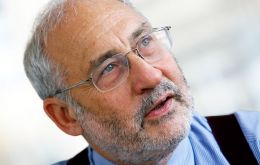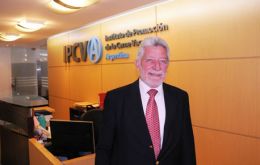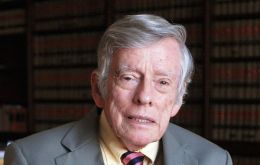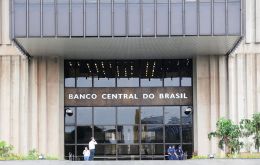MercoPress. South Atlantic News Agency
Stories for August 22nd 2014
-
Friday, August 22nd 2014 - 23:48 UTC
Don't blame Columbus: TB in the Americas already was present...in seals

The long-held idea that Europeans were the first to bring tuberculosis to the Americas when they arrived in the 15th Century has been thrown into doubt. Instead, a study suggests that the deadly disease was present in the area hundreds of years before Christopher Columbus made landfall.
-
Friday, August 22nd 2014 - 23:36 UTC
WTO rules against Argentina in trade dispute with world powers

The World Trade Organization (WTO) dispute panel ruled on Friday against Argentina in a 2012 case brought by the United States, European Union and Japan against Argentine import licensing rules used to restrict imports.
-
Friday, August 22nd 2014 - 13:19 UTC
Two first patients treated for Ebola virus in US hospital have been released

The two United States aid workers who were the first patients ever to be treated for the Ebola virus at a hospital in the US have been released, capping a transcontinental medical drama that stirred public debate about whether citizens with the virus or exposed to the virus should have been allowed to return.
-
Friday, August 22nd 2014 - 13:07 UTC
Unlikely bedfellows: mines that run on solar or wind power

Mining companies are often seen as dinosaurs when it comes to making changes that will benefit the environment, but that perception may be shifting as some companies turn to renewable energy to cut costs and lighten their carbon footprint.
-
Friday, August 22nd 2014 - 08:20 UTC
Nobel Prize Stiglitz sides with Argentina in reopening the debt swap

In an interview with Argentina’s daily 'Ambito Financiero', Nobel Economics laureate Joseph Stiglitz considered the Argentine government’s move to reopen the debt swap and replace the Bank of New York Mellon with local Banco Nacion as trustee a “good call” saying the reopening would not be mandatory, “voluntarily” inviting bondholders to join the strategy.
-
Friday, August 22nd 2014 - 08:04 UTC
Argentina suspends beef exports 15-days to contain domestic prices

The Argentine government has decided to restrict beef exports for a 15-day period seeking to stem the rise of prices in the domestic market. The decision was confirmed by Cabinet Chief Jorge Capitanich and sparked criticism by business leaders in the sector with some voices saying the strategy will have “no positive effects.”
-
Friday, August 22nd 2014 - 07:43 UTC
Argentina describes Griesa as 'ignorant' and lacking knowledge on democratic institutions

The Argentine government again blasted Judge Thomas Griesa for declaring 'illegal' the bill sent to Congress referred to the country's debt and creditors, and said the magistrate “ignores national sovereignty” and “ignores how democratic institutions function”.
-
Friday, August 22nd 2014 - 07:33 UTC
European holders of swapped Argentine bonds willing to accept removal of the RUFO clause

European investors holding 5.2 billion dollars of restructured Argentine bonds are negotiating the removal of the Rights Upon Future Options (RUFO) clause that Argentina claims prevents them from negotiating with holdout funds, it was reported in the Buenos Aires media.
-
Friday, August 22nd 2014 - 07:17 UTC
Griesa leaves Argentina 'in contempt' ledge; warns any change of jurisdiction was 'lawless'

US District Judge Thomas Griesa declared on Thursday that an Argentine plan to change the 'jurisdiction' of restructured foreign debt was illegal, while resisting holdout investors' demands that Argentina be held in contempt of court for attempting to change the site of payment to Buenos Aires.
-
Friday, August 22nd 2014 - 07:07 UTC
Depressed Brazilian economy becomes focus of presidential campaign

With less than two months to the crucial 5 October presidential election, Brazil's Central Bank continued to battle economic turmoil increasing the credit available for commercial loans in the hope of boosting the country’s stagnant growth figures.
